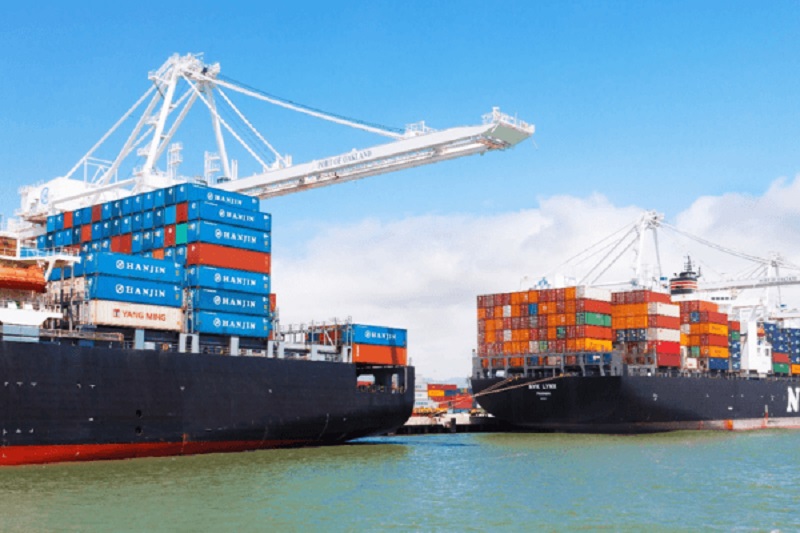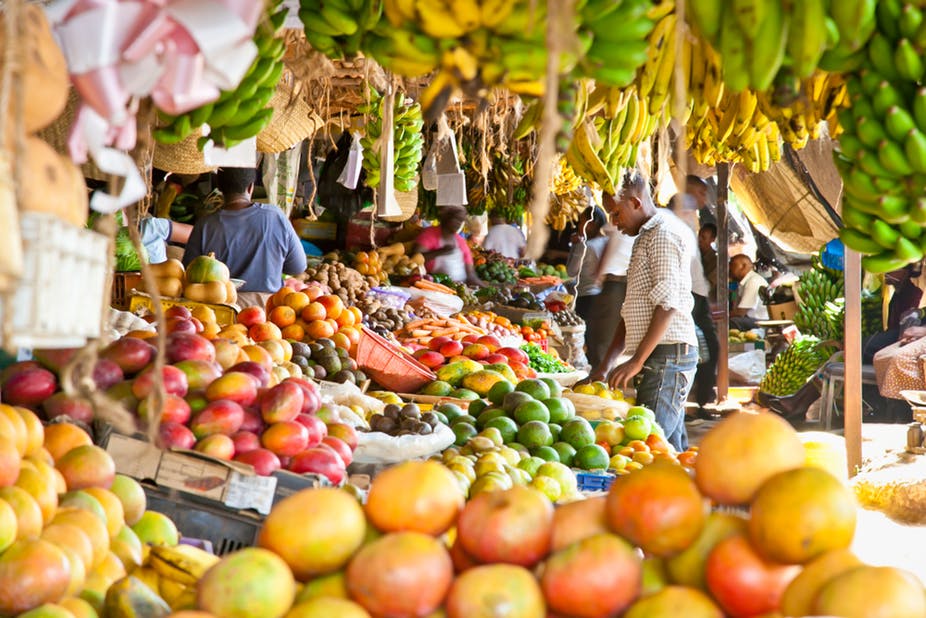Economy
Crude Oil: Saudi Arabia Extends One Million bpd Cut till December

By Adedapo Adesanya
Saudi Arabia on Tuesday extended its 1-million-barrels-per-day voluntary oil production cut until the end of the year.
The Kingdom first applied the 1 million barrels per day reduction in July and has since extended it on a monthly basis.
The cut adds to 1.66 million barrels per day of other voluntary crude output declines that some members of the Organisation of the Petroleum Exporting Countries and its allies (OPEC+) have put in place until the end of 2024.
The reduction will put Saudi crude output near 9 million barrels per day over October, November and December and will be reviewed on a monthly basis.
Fellow heavyweight oil producer Russia — which leads the contingent that joins OPEC nations in the OPEC+ coalition — also pledged to voluntarily reduce exports by 500,000 barrels per day in August and by 300,000 barrels per day in September.
Russian Deputy Prime Minister Alexander Novak on Tuesday said that it will extend its 300,000 barrels-per-day reduction of exports until the end of December 2023 and will likewise review the measure on a monthly basis.
The cuts are described as voluntary because they are outside of OPEC+’s official policy, which commits every non-exempt member to a share of production quotas.
OPEC Secretary-General Haitham al-Ghais has previously said that resorting to voluntary reductions outside of OPEC+ decisions does not suggest divisions in policy views among alliance members.
This move has lifted prices, with Brent crude currently trading at $90.07 per barrel while the US West Texas Intermediate (WTI) jumped to $86.95 per barrel. This move further compounds worries for Nigeria, which will mean an increase in fuel costs at the pumps.
According to CNBC, Saudi Arabia faces a difficult juggling act between implementing oil production cuts and the blow to its crude-reliant economy. However, it could raise prices of its headline crude to offset the trimmed production.
Saudi Arabia depends on oil revenues to support several so-called “giga-projects” designed to diversify its economy. Crude output cuts and a fall in oil prices earlier this year led to a slowdown in its GDP, which expanded by an annual 1.1 per cent in the second quarter, down from 3.8 per cent in the previous quarter and 11.2 per cent in the same period of 2022.
Saudi state-controlled company Aramco typically sells crude supplies through annual contracts that often state minimal volumes to be made available to clients. While Aramco and its customers can mutually agree to forego this requirement, customers can insist on receiving their contracted volumes — which would push Saudi Arabia to either withdraw from its dwindling stocks or increase production.
The Paris-based International Energy Agency (IEA) expects increasing supply tightness in the second half of 2023 as demand recovers in China, the world’s largest crude importer, but that hasn’t materialised.
Economy
Oyetola Orders Dibursement of Cabotage Vessel Financing Fund

By Adedapo Adesanya
The Minister of Marine and Blue Economy, Mr Adegboyega Oyetola, has instructed the Nigerian Maritime Administration and Safety Agency (NIMASA) to initiate the long-awaited disbursement process for the Cabotage Vessel Financing Fund (CVFF).
This directive marks a significant shift from over two decades of administrative stagnation and ushers in a new era of strategic repositioning of Nigeria’s indigenous shipping.
The CVFF, established under the Coastal and Inland Shipping (Cabotage) Act of 2003, was designed to empower Nigerian shipping companies through access to structured financing for vessel acquisition. However, successive administrations failed to operationalize the fund—until now.
According to the Minister, the disbursement of the CVFF will represent not just the release of funds, but a profound commitment to empowering Nigerian maritime operators, bolstering national competitiveness, and fostering sustainable economic development.
“This is not just about disbursing funds. It’s about rewriting a chapter in our maritime history,” said Mr Oyetola. “For over 20 years, the CVFF remained a dormant promise. Today, we are bringing it to life—deliberately, transparently, and strategically,” he stated.
NIMASA, in alignment with the Minister’s directive, has already issued a Marine Notice inviting eligible Nigerian shipping companies to apply.
Qualified applicants can access up to $25 million each at competitive interest rates to acquire vessels that meet international safety and performance standards.
The fund will be administered in partnership with carefully selected and approved Primary Lending Institutions (PLIs), ensuring professional and efficient disbursement.
“We are not merely funding vessels; we are investing in a future where Nigerian shipping companies can stand shoulder-to-shoulder with their international counterparts,” Mr Oyetola said.
“This is a turning point—one that affirms our commitment to local content, economic resilience, and maritime sovereignty,” he added.
The disbursement of the CVFF is anticipated to yield far-reaching benefits. It will enable the growth of a stronger, self-sufficient shipping fleet, generate employment opportunities, stimulate local shipbuilding and repair industries, and significantly reduce capital flight associated with foreign vessel chartering.
“We are doing what should have been done years ago—because our vision is clear.”
“A strong indigenous fleet is not just a matter of pride; it is a strategic national asset. Through this intervention, we will be securing jobs, strengthening our economy, and redefining our place in the global maritime economy,” said Mr Oyetola.
Economy
Nigeria’s Inflation Rate Jumps to 24.23% in March 2025

By Adedapo Adesanya
Nigeria’s inflation rate edged up to 24.23 per cent in March, according to the National Bureau of Statistics (NBS) on Tuesday.
It was the first time since the Consumer Price Index (CPI) has risen since it was rebased in January by the stats office, which made the base year 2024 from the previous 2009.
The new rate indicates an upward movement of 1.05 per cent from the 23.18 per cent reported in February 2025, signalling a return to levels (24.48 per cent) recorded in the beginning of the year after the CPI rebasing.
This latest figures came at a time that the United States President, Mr Donald Trump, has unleashed a trade war that has triggered a sharp selloff in the price of oil, Nigeria’s main export and led to the weakening of the Naira, which will push up import costs, though this should reflect in the next CPI numbers next month.
Although the US administration announced a 90 per cent day pause on the 14 per cent reciprocal tariffs last week, its felt impact remains, as it continues to fight China.
The Nigerian government have announced plans to boost its non-oil imports to tackle the blowbacks from the trade war, which will heavily impact the global economy.
The rise in inflation will also present a challenge to the Central Bank of Nigeria (CBN) regarding interest rates, which it paused at its last meeting.
Economy
Fitch Sees Nigeria’s External Debt at $5.2bn, Maintains Stable Outlook

By Adedapo Adesanya
Fitch Ratings has projected Nigeria’s external debt service to reach $5.2 billion this year from $4.7 billion in 2024, though it maintained a stable outlook for the country in its latest rating.
The agency also cited a minor delay in the payment of a Eurobond coupon due on March 28, 2025, as a reflection of persistent challenges in public finance management.
The rating firm had upgraded Nigeria’s long-term foreign-currency issuer default rating to ‘B’ from ‘B-’, with a stable outlook.
The $5.2 billion in debt service, according to Fitch, includes $4.5 billion in amortisation payments and a $1.1 billion Eurobond repayment due in November.
The development highlights the growing pressure on public finances despite ongoing economic reforms by the federal government.
Fitch noted, “The government external debt service is moderate but expected to rise to $5.2 billion in 2025 (with $4.5bn of amortisations, including a $1.1 billion Eurobond repayment due in November 2025), from $4.7 billion in 2024, and fall to $3.5 billion in 2026.”
It warned that although Nigeria’s external debt service remains within manageable levels, high-interest costs, weak revenue performance, and limited fiscal space remain significant concerns, adding that general government debt was expected to remain at about 51 per cent of GDP in 2025 and 2026.
However, it expressed concerns over the government’s revenue position, noting that interest payments will consume a substantial portion of income.
“We expect general government revenue-to-GDP to rise but to remain structurally low (averaging 13.3 per cent in 2025–2026), largely accounting for a high general government interest/revenue ratio, above 30 per cent, with federal government interest/revenue ratio of nearly 50 per cent,” it stated.
The company observed that Nigeria’s gross reserves rose to $41 billion at the end of 2024, before declining to $38 billion due to debt service payments.
Despite this, Fitch expects the country’s reserves to average five months of current external payments over the medium term, above the median for similarly rated economies, adding that recent policy reforms had contributed to increased foreign exchange inflows and better monetary stability, with inflation projected to average 22 per cent in 2025.
“Net official FX inflows through the CBN and autonomous sources rose by about 89 per cent in Q4 2024. We expect continued formalisation of FX activity to support the exchange rate, although we anticipate modest depreciation in the short term,” a part of the report stated.
It commended the government’s commitment to economic reforms, including the removal of fuel subsidies, liberalisation of the exchange rate, and tightening of monetary policy, noting that these steps had improved policy credibility and strengthened Nigeria’s ability to absorb shocks.
However, the agency warned that risks to Nigeria’s external and fiscal position remained, particularly if oil prices fall or policy implementation slows down.
-

 Feature/OPED5 years ago
Feature/OPED5 years agoDavos was Different this year
-
Travel/Tourism9 years ago
Lagos Seals Western Lodge Hotel In Ikorodu
-

 Showbiz2 years ago
Showbiz2 years agoEstranged Lover Releases Videos of Empress Njamah Bathing
-

 Banking7 years ago
Banking7 years agoSort Codes of GTBank Branches in Nigeria
-

 Economy2 years ago
Economy2 years agoSubsidy Removal: CNG at N130 Per Litre Cheaper Than Petrol—IPMAN
-

 Banking2 years ago
Banking2 years agoFirst Bank Announces Planned Downtime
-

 Sports2 years ago
Sports2 years agoHighest Paid Nigerian Footballer – How Much Do Nigerian Footballers Earn
-

 Technology4 years ago
Technology4 years agoHow To Link Your MTN, Airtel, Glo, 9mobile Lines to NIN




















